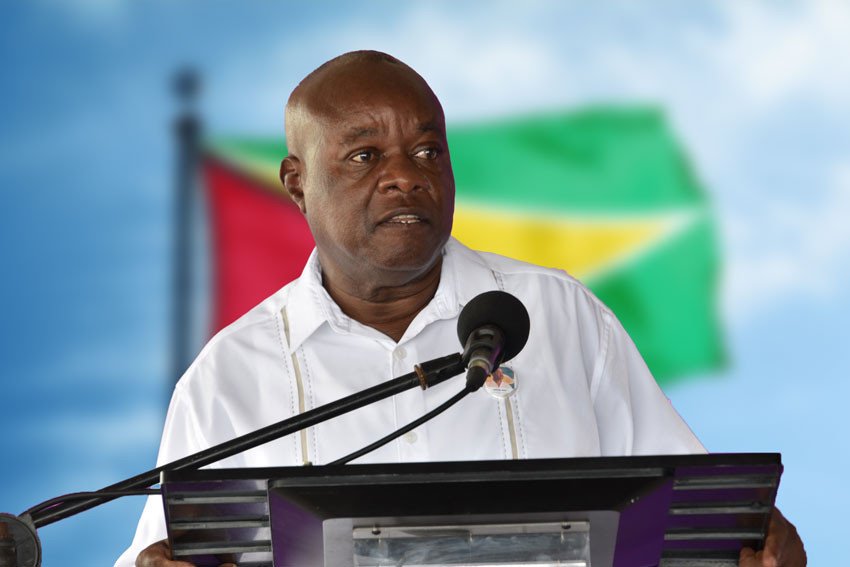Several countries with significant Indian diaspora populations commemorate Indian Arrival Day to honour the contributions of Indian indentured labourers who migrated during the 19th and early 20th centuries. In Trinidad and Tobago, Indian Arrival Day is observed on May 30th, marking the arrival of the Fatel Razack ship in 1845. Mauritius celebrates it on November 2nd, when the first Indian indentured workers landed in 1834. Similarly, Fiji observes Gurmit Day around May 14th, reflecting on the arrival of Indian labourers in 1879. These observances are not only days of remembrance but also celebrations of Indian culture, resilience, and the lasting impact of the Indian community in shaping the social, economic, and political landscapes of their adopted countries.
Opposition Leader and Leader of the People’s National Congress Reform (PNCR), Aubrey Norton, has once again reiterated his party’s stance in favour of officially designating May 5th as Indian Arrival Day, rather than the broader “Arrival Day” currently recognized by the Guyanese government.

In a statement marking the May 5th observance, Norton emphasized the historical significance of the date and its connection to the East Indian community’s heritage in Guyana. He stated:
“We take this opportunity to re-pledge our support for May 5th to be officially recognized henceforth as Indian Arrival Day. Designating May 5th as Indian Arrival Day respects the historic fact that the date specifically marks the arrival of the first Indian indentured labourers to these shores. May 5th, therefore, should be wholly devoted to celebrating the valuable contribution that our East Indian brothers and sisters have made to the development of our country and to the shaping of its rich cultural tapestry.”
Norton’s remarks reaffirm the PNCR’s position, which was first declared in 2022. This marks a significant policy shift by the party, which is traditionally known for its Afro-Guyanese support base. Political analysts also interpret the PNCR’s renewed support as a strategic effort to broaden its appeal among Indo-Guyanese citizens and challenge the People’s Progressive Party/Civic (PPP/C), which has long drawn significant backing from that demographic.
The current designation of May 5th as Arrival Day commemorates the arrival of all indentured labourers — including Chinese, Portuguese, and others — and celebrates the contributions of various ethnic groups to the building of Guyana. However, Indian rights activists, cultural organizations, and civil society groups have persistently advocated for exclusive recognition of the day as Indian Arrival Day, to honour the historic voyage of the first Indian indentured labourers who arrived in 1838 aboard the ships Whitby and Hesperus.
Over 240,000 Indians were brought to Guyana under the indentureship system between 1838 and 1917. Their descendants today make up a significant portion of Guyana’s population and have made notable contributions in agriculture, politics, business, academia, and the arts.
While the government maintains Arrival Day as a unifying observance to celebrate all ethnic groups who came to Guyana, growing calls—including from major opposition parties—may renew national debate on whether May 5th should be distinctly reserved for the Indo-Guyanese experience and legacy.
The issue continues to evoke strong sentiments across ethnic lines, with some arguing for inclusivity under “Arrival Day” and others calling for separate commemorations to fully respect and acknowledge each group’s unique history.

On May 5th, 1838, the first group of Indian indentured labourers arrived in Guyana aboard the ships Whitby and Hesperus, marking the beginning of a significant chapter in the country’s history. Over the years, nearly 240,000 Indians were brought to Guyana under the harsh indentureship system, many of whom sacrificed their lives working tirelessly in rice fields and sugar plantations to build a better future. Their resilience, culture, and hard work laid the foundation for the nation’s agricultural and economic development.
Today, Indo-Guyanese represent the largest ethnic group in Guyana (39.8%), and their contributions continue to shape the nation’s identity. Therefore, it is only just and respectful that May 5th be officially recognized as Indian Arrival Day, honouring the specific legacy of these pioneers.
Opposition Leader Aubrey Norton has rightfully called for this change. It is time for the government to acknowledge the historical truth and take appropriate action to honour the Indo-Guyanese community’s sacrifices and achievements with the dignity they deserve.





